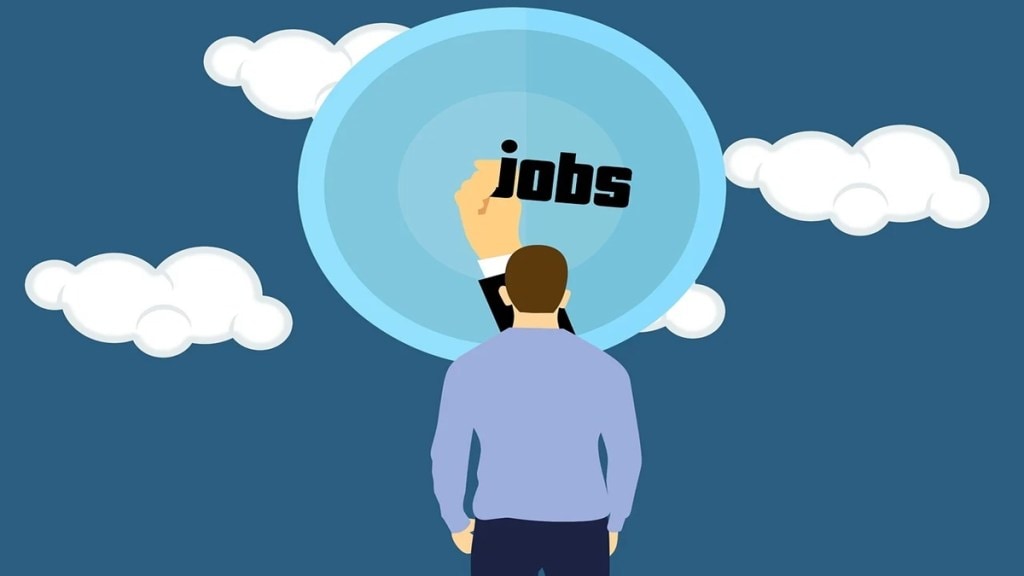– By Sarbojit Mallick
Artificial Intelligence (AI) has taken over the world, both in a literal and metaphorical sense. It has been able to penetrate every industry, from retail to manufacturing, finance, and tech, making work more automated, quicker, and easier than ever before. While these positive changes have been lauded and welcomed, there have been rising concerns about the prospect of AI technology replacing humans in the job market.
According to a recent study, 30% of workers worldwide fear their jobs will soon be replaced by AI technology. However, reality is more nuanced. AI is poised to revolutionise both recruitment and career development, creating a new landscape for both employers and employees. Let’s delve into this evolving scenario and explore how to thrive in the age of AI.
AI in Hiring: Efficiency and Bias Concerns
One of the most significant impacts of AI is on recruitment. Chatbots and virtual assistants are streamlining the initial screening process, handling applications, scheduling interviews, and even conducting basic assessments. This frees up recruiters; time to focus on high-value tasks like candidate evaluation and building rapport. Companies can also leverage AI to identify potential candidates from a wider pool of talent, reducing geographical limitations and increasing diversity in the applicant pool.
However, the use of AI in hiring raises concerns about bias. Algorithms trained on biased data can perpetuate discriminatory practices. For instance, an AI tool analysing resumes might inadvertently favour candidates from certain educational backgrounds or with specific keywords in their experience. To mitigate this risk, companies need to ensure their AI tools are built with fairness in mind.
This includes using diverse training data sets, regularly auditing algorithms for bias, and involving human oversight in the final hiring decisions. A 2023 study by Korn Ferry found that 63% of talent acquisition professionals report AI has positively impacted their recruitment process by streamlining tasks and identifying qualified candidates faster.
AI-Powered Upskilling: Staying Ahead of the Curve
The skills needed to succeed in the workplace are constantly evolving. AI can play a crucial role in identifying skill gaps and providing personalised learning pathways. Adaptive learning platforms powered by AI can tailor training programs to individual needs and learning styles. These platforms can analyse a user’s performance on assessments and learning modules, then recommend specific courses, articles, or videos to help them develop the necessary skills. This personalised approach to learning is much more effective than traditional one-size-fits-all training programs.
AI can also be used to identify emerging trends in the job market and anticipate future skill demands. By analysing vast amounts of data, AI can predict which skills will be in high demand in the coming years. This information can be used to develop targeted training programs and help employees prepare for the future of work.
Here’s an interesting fact: A study by McKinsey Global Institute estimates that as early as 2030, AI could contribute to the creation of 20 million to 50 million new jobs globally. This highlights the potential for AI to drive job creation in new and emerging fields, such as data science, cybersecurity, and AI development itself. However, the jobs created by AI are likely to require different skill sets than those being replaced. This underscores the importance of continuous learning and upskilling for employees to remain competitive in the job market.The skills that will matter most in the coming times include data analysis, advanced machine learning, critical thinking, teamwork and effective communication, in addition to increased digital literacy.
Collaboration is Key
Despite AI’s growing influence, human judgement and skills remain irreplaceable. Recruiters still need to assess a candidate’s cultural fit, soft skills, and leadership potential, which are difficult for AI to quantify. Similarly, career development initiatives that foster mentorship, networking, and personalised guidance will continue to be valuable. Mentors can provide career advice, share their experiences, and offer emotional support, which AI cannot replicate.
The future of work in the age of AI lies in collaboration. By leveraging AI’s efficiency and data analysis capabilities alongside human expertise and emotional intelligence, both employers and employees can navigate this transformative era and achieve success.
Employers can leverage AI to automate tedious tasks like resume screening and initial candidate assessments, freeing up their time to focus on building relationships with potential hires. They can also use AI-powered learning platforms to personalise training and development opportunities for their employees.
Employees can benefit from AI by taking advantage of personalised learning recommendations and upskilling programs. They should also strive to develop skills that are less susceptible to automation, such as critical thinking, creativity, and problem-solving. The World Economic Forum’s Future of Jobs Report 2020 has highlighted that social and emotional intelligence skills will be some of the most in-demand skills by 2030. This includes skills like active listening, emotional regulation, and building relationships. These are all areas where machines currently struggle, making them valuable assets for human workers.
AI offers exciting possibilities for streamlining recruitment and personalising career development. By embracing this technology while remaining mindful of its limitations, we can create a future of work that benefits everyone. The key lies in collaboration, where AI empowers humans to focus on their strengths and achieve their full potential.
(Sarbojit Mallick is the co-founder at Instahyre.)
(Disclaimer: Views expressed are personal and do not reflect the official position or policy of Financial Express Online. Reproducing this content without permission is prohibited.)
